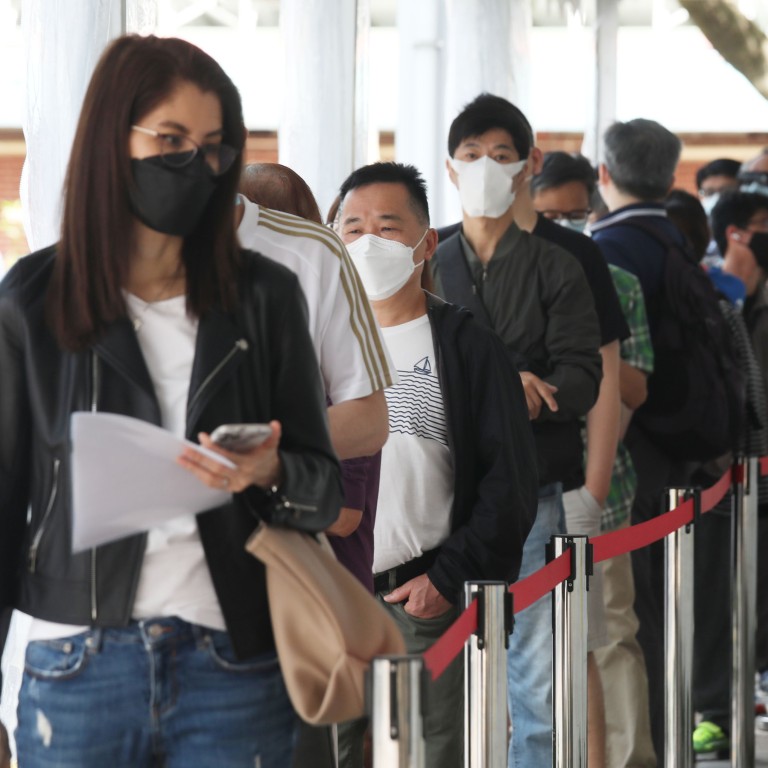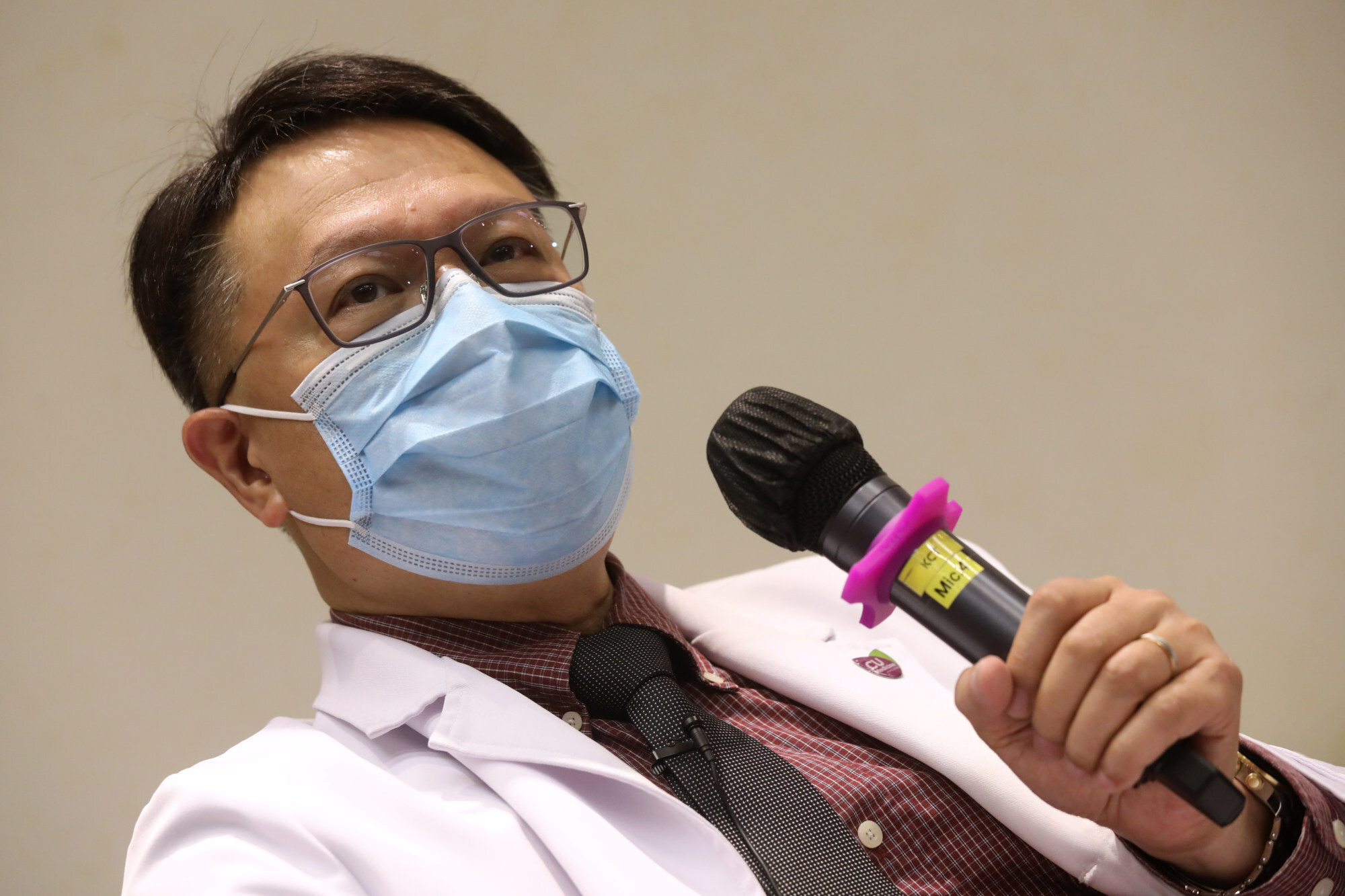
Coronavirus: Hong Kong ‘does not need to rush’ to secure a third vaccine; 13 new Covid-19 cases confirmed
- Existing supply from Sinovac and BioNTech is sufficient to cover the population, says government adviser on Covid-19 pandemic
- Most of Sunday’s new cases are imported, while two are linked to Tuen Mun housing estate at centre of a new cluster
Respiratory medicine specialist Professor David Hui Shu-cheong said on Sunday the 15 million shots in total already secured by the city from vaccine producers Sinovac and BioNTech were sufficient for its population.
Hui’s assurance came as Hong Kong confirmed another 13 Covid-19 cases, of which 11 were imported. The two locally transmitted infections were linked to a Tuen Mun housing estate at the centre of a new cluster.
Meanwhile, the death of a 58-year-old man who suffered a cardiac arrest 23 days after receiving a Sinovac jab has been referred to an expert committee for review, as is standard procedure in such cases.
The Department of Health said the man was a smoker and experienced sudden difficulties with breathing while at work on Thursday night.
The Drainage Services Department, where the man worked, said it would provide assistance to his family and cooperate with investigations.
No causal relationships between Covid-19 vaccinations and deaths have been in established in Hong Kong.
On the city’s jab supply requirements, Hui told a radio show: “There’s no need to get a third vaccine for now. But on the other hand, the government can reserve its resources for new vaccines in the future, especially second-generation ones, to see if their safety risk and protection rates are higher and able to deal with Covid-19 variants before purchasing.”
Previously, Hui urged authorities to look at other potential first-generation vaccines to bolster Hong Kong’s supply, such as one developed by Johnson & Johnson. However, the Post learned on Saturday the pharmaceutical firm did not have any stock available for the city this year.
The Hong Kong government pulled out of a key part of its agreement with AstraZeneca this week and asked the firm not to deliver the first batch of 7.5 million shots. The move followed findings by the European Medicines Agency of a “very rare” link between blood clots and the vaccine, which AstraZeneca co-developed with the University of Oxford.
Local health experts had also expressed concerns that while the AstraZeneca vaccine offered 70 per cent protection against the non-mutated coronavirus, it was only 10 per cent effective for a new South African variant.
Hui urged the government to ensure the public were better educated about vaccines, as he continued to encourage residents to sign up.
“Many times citizens don’t get the jabs because they read media reports on people who died after getting the vaccine and are worried the deaths are related to it,” he said.
The benefits of vaccination would include being able to travel, Hui added, with the government recently relaunching efforts to strike quarantine-free travel bubble deals with countries such as Singapore, Japan, South Korea, Australia, New Zealand, Thailand and Vietnam.
Hui also advised against relaxing social-distancing measures at this stage, pointing out there were still invisible chains of infection within the community.
He talked about the case of a 35-year-old woman going into intensive care after suffering an adverse allergic reaction from receiving a BioNTech jab. She had to receive two epinephrine injections to recover. He described the case as a rare one.
“For every one million people who are vaccinated with the BioNTech jabs, there are around 4.7 cases of serious reactions,” he said, citing the woman’s case as an example of having a severe allergic reaction with swollen lips and breathing difficulty.
According to a government press release on March 16, the woman had developed a rash on her limbs, severe allergic reactions, and shortness of breath after being vaccinated on March 15. She was sent to Prince of Wales Hospital for treatment. However, the statement did not mention that she was admitted to the intensive care unit.
In response to a query about the discrepancy, the Department of Health said it had provided basic information about the case on March 26.

“If there is a rebound of cases, then these [travel bubbles] will fail. So if there are still unknown cases, it’s hard to relax social-distancing measures, so we need to be careful when handling this,” he said.
Hui said while the number of local cases was “not too bad” for now, there were still invisible transmission chains in the community.
Referring to the latest cases in Tuen Mun, he said there were issues surrounding some of the city’s older housing, including sewage problems and high population density.
“Now the local case numbers don’t look too bad ... I think the fourth wave is ending, but I hope there won’t be more clusters. Otherwise, the pandemic will rebound again,” he said.
The city’s total tally of Covid-19 cases stands at 11,581 cases, with 207 related deaths.

